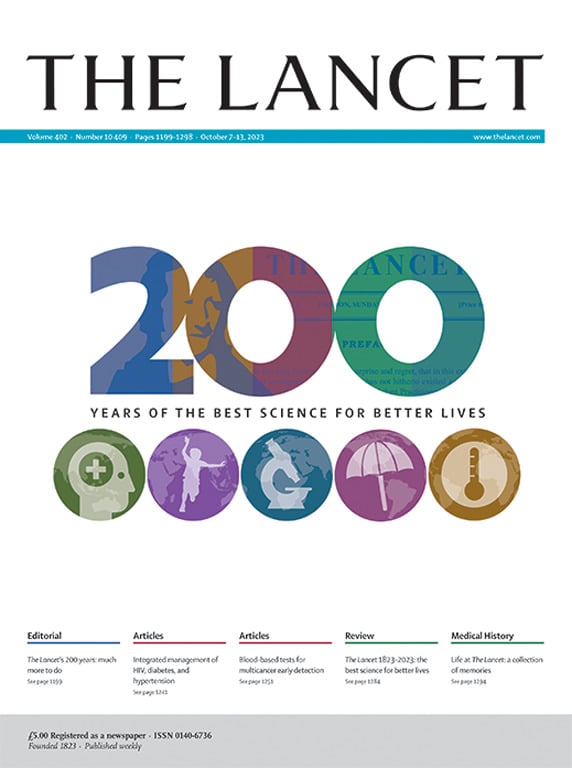An editorial in the journal terms “200 years,” a milestone, a brief moment in the long and erratic history of human endeavour
On October 5, 2023, the Lancet medical journal marked its 200th anniversary by publishing a special theme issue to reflect on what its history means and what the future might hold.
In its editorial, “The Lancet’s 200 years: much more to do” the journal wrote that its founder, Thomas Wakley, intended to open medical knowledge to a wider readership and to engage politically with the health issues of his time. In their review article, Martin Gorsky and Agnes Arnold-Forster describe The Lancet’s participation in some of the biggest scientific discoveries of the past two centuries. But the reality is that the personality of the journal—its interests and attitudes—has evolved with each new generation of editors, reviewers, authors, and contributors.
“The journal’s perspective today is very different from that of 1823. Our collective task is to reinvent Wakley’s purpose for a new time,” the editorial reads. “Perhaps the most important difference between then and now is that we seek to be more inclusive of communities worldwide. Our intention is to foster a truly global conversation about health, medicine, and medical science, with the goals of advancing health, health equity, and social justice.”
The editorial terms “200 years,” a milestone, a brief moment in the long and erratic history of human endeavour.
“Much of what we call progress in health is as much due to increasing prosperity and wider educational opportunity, as it is to technical medical advance,” the editorial reads. “But the importance of health as an idea in society lies beyond the immediate materiality of bodily wellbeing. Our concern for health and our investment in health systems are proof of our social commitments to one another—health is an expression of our human solidarity.”
In their article, “The Lancet’s enduring legacy: speaking truth to power” authors Sania Nishtar, Amn Nasir, Mohamed Abdi Jama, Jeanette Vega, Wesam Qaid and K Srinath Reddy, say that despite being a general medical journal, The Lancet has committed itself to global conversations about medicine and public health, providing a platform for health workers and scientists worldwide.
“It is known as the voice of social justice, for bringing attention to crucial topics affecting marginalised populations, and for spotlighting neglected areas,” the article says.
Also read: Pill for Postpartum Depression: Lancet says medication not a rapid solution


















Add Comment